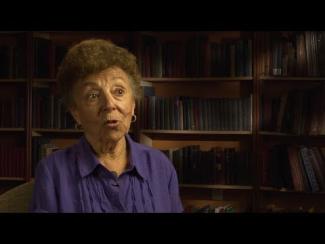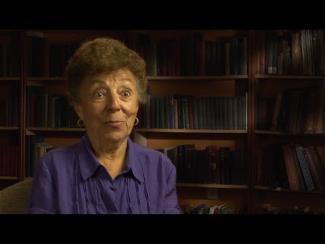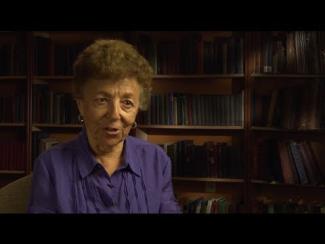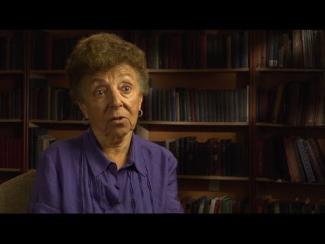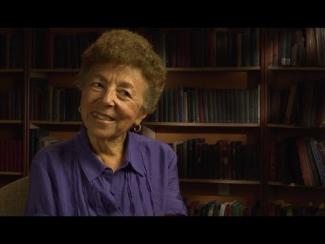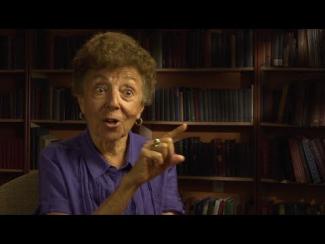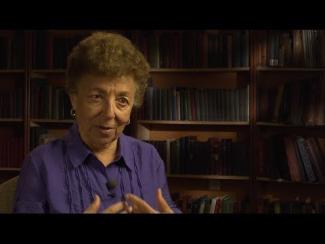The Yiddish Book Center's
Wexler Oral History Project
A growing collection of in-depth interviews with people of all ages and backgrounds, whose stories about the legacy and changing nature of Yiddish language and culture offer a rich and complex chronicle of Jewish identity.
Diana Cohen's Oral History
Social worker Diana Cohen was interviewed by Jordan Kutzik on July 25, 2012 at the Yiddish Book Center in Amherst, Massachusetts. Both her parents came from Belarus. They lived together in the Bronx when Diana was young and then separated. The family spoke Yiddish in the home and Diana didn't learn English until kindergarten. She recalls a school clerk rejecting her actual name, Dina, and giving her a more American name, Diana. Diana grew up in a Jewish and Italian neighborhood in the northeast Bronx. She remembers all the Jewish shopkeepers and the family's struggles through the Depression. Her father was a Labor Zionist who was not religious; the family were secular, culturally identified Jews. Diana attended the Sholem Aleichem folkshule, which taught only Yiddish, the Farband (Labor Zionist) folkshule which taught Hebrew and Yiddish, and the lerer-seminar which equipped students to teach both languages. She also belonged to Habonim, the Labor Zionist group for young people, and attended Camps Kindervelt and Kvutza. She remembers her father taking her to third seders where people including Golda Meir and Ben-Gurion were talking about the need for a Jewish homeland. Diana attended City College of New York where she majored in languages and education in hopes of becoming an interpreter at the United Nations, but there were barriers to Jews getting such jobs at that time. She ended up supporting her husband while he went to college and then focused on raising her children. She later got a social work degree at Rutgers and then worked at Jewish Federation for 25 years. She also taught Hebrew school and discusses her frustration with this experience. Diana describes her first trip to Israel in 1967 and some of her experiences on that trip and many subsequent visits. She wonders what her father would say about the Israeli-Palestinian conflict and the inequities between Jews and Palestinians in the present day. Diana discusses raising her children and instilling in them her values of social justice, Zionism, and love of Judaism, with varying results. Diana describes how she got in contact with a cousin in Israel who she had known nothing about through hearing him on a Boston Yiddish Radio show. They have continued to correspond, and she and her husband visited with three generations of these newly discovered relatives. Diana is also related to the Yiddish writer Shmuel Nissan Godiner and has recently translated one of his short stories into English. She hopes to continue on this project and is also working on a memoir. Diana is hesitant to advise future generations because she finds even her grandchildren difficult to understand at times. However, she talks about the importance of finding a cause to believe in.
This interview was conducted in English.
Diana Cohen was born in Bronx, New York in 1927.

